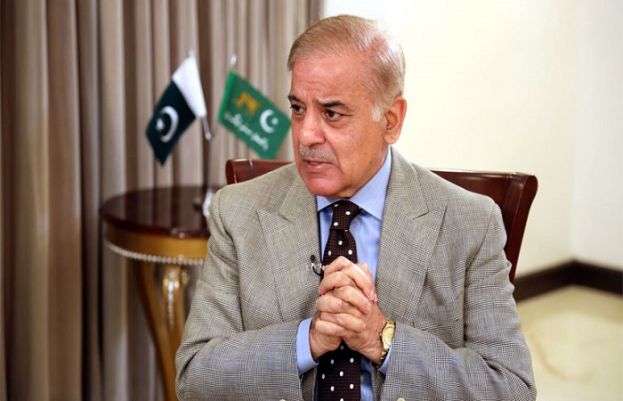
In a series of tweets, the premier said: "Today marks the third sombre anniversary of India’s illegal and unilateral actions of August 5, 2019 aimed at changing the internationally recognised disputed status of occupied Jammu and Kashmir and altering the demographic structure of the occupied territory."
He lauded brave Kashmiris for persevering in the face of fear, intimidation, torture and the worst forms of human rights violations. "Indian oppression has failed to dent their resolve," PM Shehbaz remarked.
"The Jammu and Kashmir dispute has been a battle of hope against overwhelming odds, of courage against fear and of sacrifice against tyranny. Today, we pay rich tributes to all the martyrs of IIOJK for their ultimate sacrifice and to their families for their resolve and courage," the prime minister added.
In a statement issued by the President House, President Dr Arif Alvi said that the resolution of the Kashmir dispute was the only way to ensure durable peace and stability in the region.
"India's actions of August 5, 2019 contravene several United Nations Security Council (UNSC) resolutions which stipulated that the final disposition of the State of Jammu and Kashmir will be made in accordance with the will of the people through a free and impartial plebiscite conducted under the auspices of the United Nations," he stated.
The president further promised that Pakistan would "continue to stand shoulder-to-shoulder with our Kashmiri brothers and sisters in their just struggle".
Foreign Minister Bilawal Bhutto-Zardari highlighted that the developments in the occupied valley over the last three years had proven that "India has been relentlessly pursuing its nefarious design of furthering demographic changes".
"It is doing so through repressive measures, including outrageous gerrymandering, to create Hindu-dominated constituencies at the expense of Muslim majorities, the issuance of millions of fake domicile certificates to non-Kashmiris, and modifying laws on ownership of land and property," he said.
Bilawal pointed out that the presence of 900,000 troops had turned India into "the most militarised zone in the world", highlighting that more than 650 Kashmiris had been martyred since August 5, 2019, including over 130 so far this year.
Calling on the international community, he demanded that the United Nations live up to its promise of granting the right of self-determination to the Kashmiri people.
"The international community must demand an end to India’s gross and widespread human rights violations in IIOJK, reversal of its unilateral and illegal actions of August 5, 2019, repeal of draconian laws, and implementation of relevant UNSC resolutions on Jammu and Kashmir," the foreign minister said.
Pakistan will always remain in strong support and solidarity with the Kashmiri brethren till the full realisation of their legitimate rights, he added.
India's 2019 revocation of Article 370
On August 5, 2019, India's ruling Bharatiya Janata Party (BJP) had revoked occupied Kashmir's special status by repealing Article 370 of the constitution. The move allowed people from the rest of the country to have the right to acquire property in occupied Kashmir and settle there permanently.
Kashmiris, international organisations and critics of India’s Hindu nationalist-led government saw the move as an attempt to dilute the demographics of Muslim-majority Kashmir with Hindu settlers.
Earlier this year, the Indian government said a delimitation commission had finalised 90 assembly constituencies for the IIOJK, excluding Ladakh, with 43 seats for Jammu and 47 for Kashmir. Earlier, Jammu had 37 seats and the Kashmir valley had 46.
The delimitation commission claimed it had been difficult to accommodate competing claims from various sides, citing in a statement the region’s "peculiar geo-cultural landscape".
Subsequently, the Pakistan Foreign Office had handed over a demarche to Indian charge d’affaires, conveying the Government of Pakistan’s categorical rejection of the report of the so-called ‘Delimitation Commission’, which was aimed at disenfranchising and disempowering the Muslim majority population of occupied Kashmir.
The FO had called on India to refrain from bringing about any illegal demographic changes in the occupied territory, stop forthwith its oppression in the IIOJK, and let the Kashmiri people determine their own future through a free and fair plebiscite under the UN auspices.
from latest-news - SUCH TV https://ift.tt/RdKceSv

0 Comments